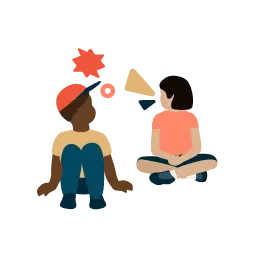Signs of receptive language disorder
Receptive language disorder is a lifelong condition that makes it hard to know what others are saying. The difficulty isn’t with hearing. It’s with understanding the meaning of language.
Trouble with these skills can affect learning, working, and daily living. It can make socializing hard for both kids and adults. And it can take a toll on self-esteem and confidence.
Receptive language disorder is developmental. The signs can show up as early as preschool and continue into adulthood. Kids who struggle with receptive language often have trouble with expressive language, too.
People can be diagnosed with receptive language disorder at any age. But it’s important to catch it as early as possible. Speech-language therapy can improve language skills. And the sooner treatment starts, the more it can help.
Here are some signs of receptive language disorder at various ages.
Pre-K
Has trouble identifying objects
Grades K–2
Has trouble answering questions
Waits to see what other kids do before acting
Has trouble focusing when someone is talking, especially when there’s background noise
Only does half of a task
Grades 3–5
Seems to be listening, but then doesn’t act
Gives responses that are “off” (not related to the conversation) or that aren’t very specific
Interrupts people who are speaking
Often asks people to repeat themselves
Has a more limited vocabulary than other kids
Tweens and teens
Has a hard time following group conversations
Rarely asks questions or makes comments during conversation or class discussions
Remembers details, but doesn’t get the bigger context
Misunderstands what’s been said
Doesn’t understand jokes or takes things literally
Seems uninterested in conversation
Avoids joining afterschool clubs or activities
Adulthood
Doesn’t understand language used at work
Has trouble keeping up with what people say in meetings
Has a hard time answering questions in meetings
Doesn’t respond when people say something
Seems shy or withdrawn
Avoids social gatherings
Misinterprets conversation and takes things the wrong way
Struggling with receptive language can make kids and adults feel isolated. But there are ways to improve these skills.
Using visual cues and written organizers can help kids understand spoken information in class. Social skills groups and role-playing can help kids interact. And using email and text can help teens and adults who struggle with following verbal information.
Learn more about receptive language disorder in kids.

